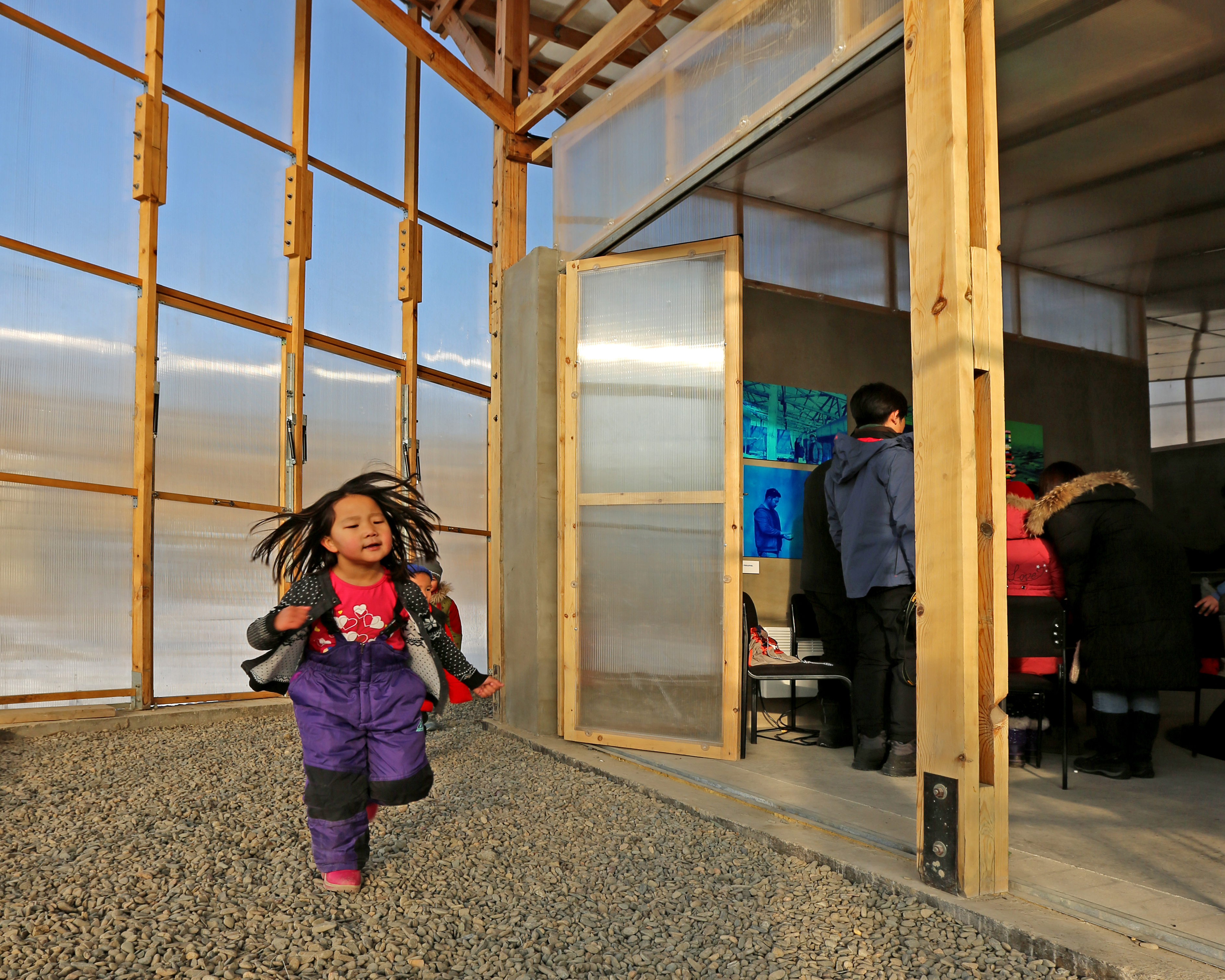Ger Innovation Hub
The Ger Innovation Hub provides much needed community infrastructure to
residents living in the Ger districts of Ulaanbaatar, Mongolia.
The Hub will
offer a crèche, after-school club, performance space and educational workshops
for talks and vocational training. Inspired by the ger, we designed a layered
structure: An inner room made of mud bricks is surrounded by an outer layer of
polycarbonate, creating a buffer space that traps radiant heat in the winter.
This reduces energy consumption and serves as a model for the district to
reduce coal use.
The building
is a place for all sections of the community and offers an alternative place to
go, when, particularly in winter, residents are confined to their households.
As we continue to monitor and evaluate the building’s performance, the project
demonstrates how the process of making architecture can be a model to enable
the construction of a community.
︎︎︎ Back to Mongolia Projects



